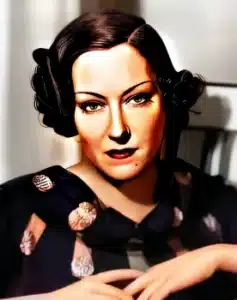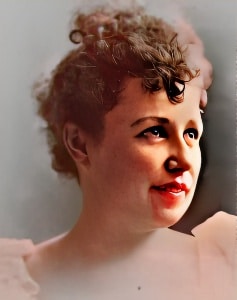 Gloria Swanson, born on March 27, 1899, in Chicago, Illinois, was an iconic actress of the silent film era, known for her beauty, charisma, and remarkable talent.
Gloria Swanson, born on March 27, 1899, in Chicago, Illinois, was an iconic actress of the silent film era, known for her beauty, charisma, and remarkable talent.
Her career spanned several decades, making her one of the most enduring and celebrated figures in the history of cinema.
Swanson’s journey into the world of entertainment began during her teenage years when she worked as a fashion model and appeared in various silent films. Her early roles were often uncredited or minor, but her star quality quickly became evident, leading to significant opportunities.
One of the defining moments in Gloria Swanson’s career was her collaboration with director Cecil B. DeMille. DeMille recognized Swanson’s potential and cast her in a series of films, including “Don’t Change Your Husband” (1919) and “Why Change Your Wife?” (1920). These films marked the beginning of Swanson’s ascent to stardom and her association with DeMille’s grand productions.
Gloria Swanson’s remarkable beauty and on-screen presence made her a sought-after leading lady. Her performances in films like “ Male and Female” (1919), “Something to Think About” (1920), and “The Affairs of Anatol” (1921) solidified her status as one of Hollywood’s top stars. Swanson’s ability to convey a wide range of emotions through her expressions and physical acting endeared her to audiences.
The 1920s were a significant period in Swanson’s career, marked by her collaboration with director Erich von Stroheim on “Queen Kelly” (1929). This film, although left unfinished and unreleased at the time, is now considered a cult classic and a testament to Swanson’s willingness to explore unconventional and challenging roles.
As the transition to sound films unfolded, Swanson successfully adapted to the new era. Her melodious voice and charisma made her a natural fit for talkies. “The Trespasser” (1929) and “Indiscreet” (1931) were among her notable early sound films, and her performance in the former earned her an Academy Award nomination for Best Actress.
One of the most iconic moments in Gloria Swanson’s career came with her role in the 1950 film “Sunset Boulevard,” directed by Billy Wilder. In this film, Swanson portrayed Norma Desmond, a faded silent film star struggling with delusions of grandeur. Swanson’s portrayal was both poignant and a reflection of her own experiences, resulting in an Academy Award nomination for Best Actress. “Sunset Boulevard” remains a classic and is often cited as one of the greatest films in cinematic history.
Swanson’s legacy extends beyond the silver screen. She was a pioneering businesswoman, launching her own line of cosmetics and developing a skincare regimen. Her beauty and fashion sense had a lasting influence on the industry.
In her later years, Gloria Swanson continued to make occasional film and television appearances while also focusing on her various business endeavors.
In conclusion, Gloria Swanson was a legendary actress of the silent film era, celebrated for her beauty, charisma, and remarkable talent. Her transition to sound films, her iconic role in “Sunset Boulevard,” and her lasting influence on the world of beauty and fashion make her one of the most enduring figures in the history of cinema. Swanson’s contributions to the art of acting and her impact on Hollywood continue to be celebrated and remembered by film enthusiasts around the world.
Loading live eBay listings...




